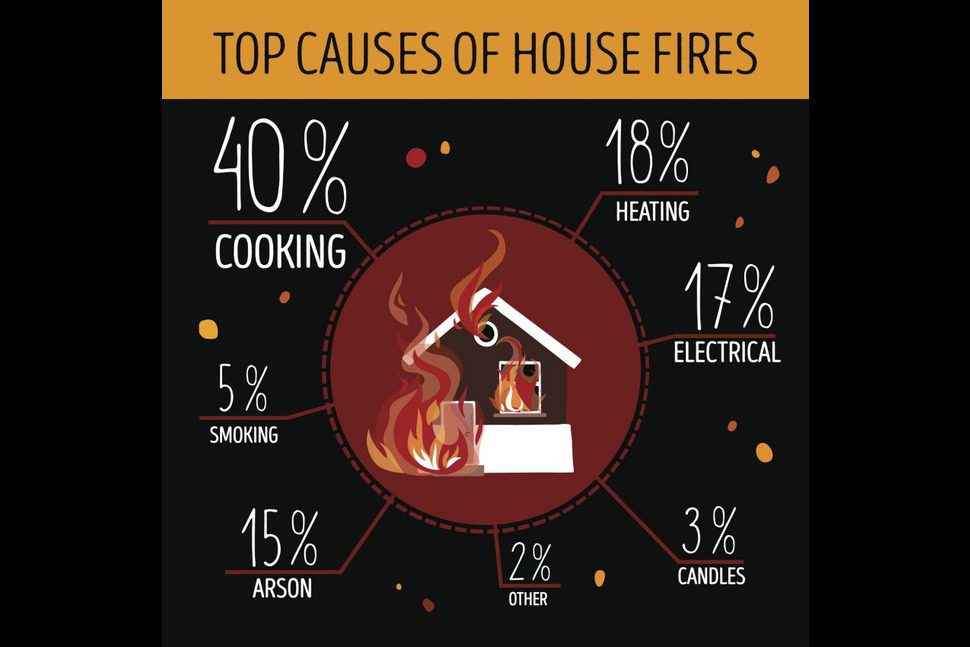
Common Causes of House Fires
May 15, 2023
Eco-Friendly Changes For Your Home Today
May 27, 2023Have you ever had bugs, rodents, or other pests in your home? Homeowners Insurance doesn’t cover damage caused by pests like termites, rats, or bed bugs. Offensive action is necessary to prevent pests from entering your home before they do so. There are several ways to eliminate conditions both inside and outside your home.
Minimize Plants and Mulch
Tree branches and shrubbery should always be trimmed back so not to touch your home. Pests commonly use growth around the home as a bridge to easily enter your home. Likewise, mulch in garden beds can provide ideal shelter for pests. So instead of using mulch in areas that touch your foundation, place less pest-attractive ground cover, such as rocks.
Seal Doors and Windows
Pests wiggle through tiny cracks and gaps, so you should regularly inspect and repair any warped or broken doors and windows. Also, promptly repair any rips or tears in screens. Use screen mesh sizes with at least 200 holes per square inch.
Check for Cracks and Gaps
Doors and windows aren’t the only places that can have tiny openings. Routinely inspect the entire exterior of your home for other cracks, crevices, and gaps through which pests could enter. Check for foundation cracks, loose siding, missing roof shingles, and gaps around utility lines, including pipes, electric wiring, and cable wiring. Seal any openings with copper mesh, coarse steel wool, sheet metal, or mortar. Expanding caulk is not ideal to use because many pests can chew through it.
Properly Dispose of Trash and Litter
Most people know that household garbage can attract pests, such as ants, roaches, and rodents. But yard waste also can draw in pests that might see it either as a nest or a food source. Make sure that all of your trash cans have tight-fitting lids, and clean the cans and area where they sit regularly to remove debris and spills on which pests can feed. Plus, keep yards, patios, decks, and garages free of leaf litter, plant clippings, and standing water, all of which can provide ideal environments for pests to create a home.
Rinse Recyclables
Just like with trash, it is preferable to store recyclables in a bin that has a tight-fitting lid. However, some municipalities provide open bins to their residents. If this is the case for you, thoroughly rinse all the food from your recyclables before putting them in the bin. Taking a little extra time to do this should keep your bin pest-free. And if possible, store the bin outside rather than in your garage or home.
Use the Right Light Bulbs
To reduce flying insects around doors and windows, replace standard mercury vapor lights with high-pressure sodium vapor or halogen lights. Bulbs that have pink, yellow, or orange tints will be least attractive to the insects. You also might want to change the location of your light if possible. While it is common to place lights on exterior walls near doors, it is better to position the light farther away from your house on a pole. This will keep most of the insects by the pole and not your house. Just make sure the light still reaches the door to keep it illuminated for safety purposes.
Look for Interior Gaps
Many pest preventative measures take place outside the home. But some cracks and gaps will be visible only from the inside. Regularly check inside, under, and behind kitchen cabinets, refrigerators, and stoves for signs of pests. Also look for gaps in trim, as well as around pipes, vents, and cables. Seal any gaps you find, especially those of a quarter-inch or greater. A good indicator that these gaps lead directly outside is if you can feel airflow coming from them.
Clean Drains
Sink and floor drains often accumulate gunk and debris. This can attract pests and provide an ideal breeding site, especially for small flies. So make sure to regularly inspect and clean all the drains in your home, including those in the laundry room and basement. Baking soda and vinegar make an excellent homemade drain cleaner, providing foaming action that flushes out clogs.
Store Food in Sealed Containers
Some pests, such as rodents, have an excellent sense of smell. And if there’s an open food container somewhere in your home, odds are they will zero in on it. Always store pantry foods, such as cereal and crackers, in reusable containers or resealable bags if the original packaging can’t be fully sealed. And aim to clean out your pantry on a regular basis to get rid of spoiled food or other items you don’t plan to eat. This will help to minimize the attraction for any “pantry pests.”
Regularly Clean Your Home
The cleaner your home is, the less attraction it will have for pests. When you keep up on your vacuuming, mopping, and other household chores, you will regularly disturb any areas where a pest might be considering making a home. Plus, you’ll pick up crumbs and other debris that might have been a potential food source for pests. And when you regularly make the cleaning rounds, you’re likely to spot any potential entrances for pests before they become a problem.

